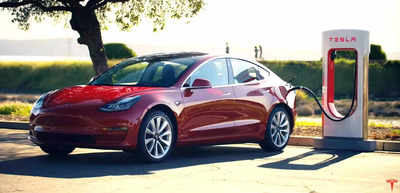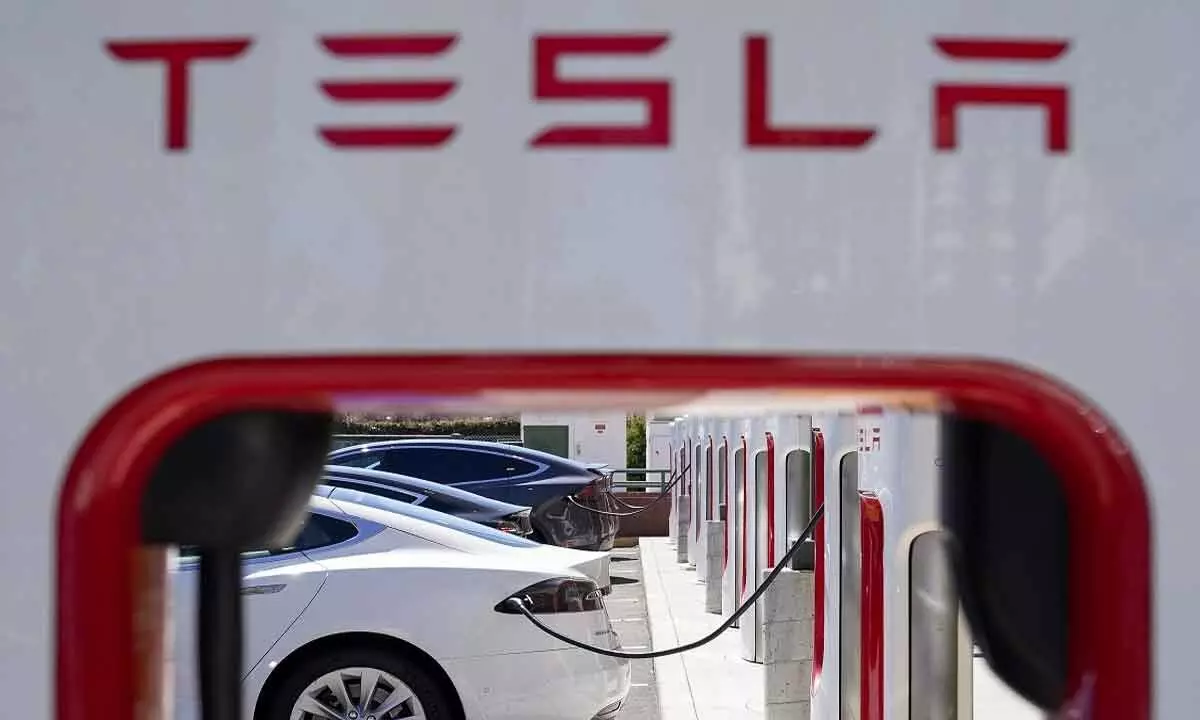Tesla’s Ambitious Plans, From Half a Million EVs Annually in India To Supply Chain Expansion But No Duty Waivers For Tesla
Tesla, the renowned electric vehicle (EV) manufacturer led by billionaire Elon Musk, is reportedly in discussions with the Indian government to establish a factory capable of producing approximately 500,000 electric vehicles annually. The company aims to leverage India not only as a manufacturing hub but also as an export base for countries in the Indo-Pacific region. However, Tesla's entry into the Indian market has faced obstacles in the past, primarily due to high import taxes imposed by the government. Now, with renewed efforts and changed perspectives, Tesla is exploring the Indian market and evaluating potential incentives and possible tax breaks.

Last year, Tesla encountered setbacks in its plans to enter India when the government refused to reduce import taxes on its vehicles, which can reach up to 100% for electric vehicles.
While India expressed interest in local manufacturing, Tesla aimed to gauge demand by exporting its cars to the country first. However, the company has now engaged in discussions with the Indian Commerce and Industry Ministry, focusing on both local manufacturing and exports. The government hopes to strike a favourable deal that ensures a level playing field while offering incentives to Tesla.
The starting price for the vehicles will be 20 Lakh rupees ($24,400.66), according to reports, which is more than double of India’s cheapest EV, MG Comet, and half a million costlier than Tata Nexon EV, the top-selling electric car in the country.

Tesla Explores Supply Chain Expansion in India
Tesla has been in talks with go5vernment officials to explore the possibility of establishing its own supply chain ecosystem in India. While the government has requested Tesla to evaluate the existing auto components supply chain in the country, the company has expressed interest in bringing its own suppliers to India. These discussions involve understanding the incentives and tax breaks that Tesla and its partners could receive for setting up manufacturing units in India.
Likewise, Tesla executives have been meeting with industry representatives to discuss their specific needs and requirements. Tesla has emphasized its preference for maintaining a well-established network of suppliers, citing the importance of meeting certain quality standards.
While the Indian industry advocates for local component manufacturers, Tesla remains committed to its “all in-house” approach.
Experts suggest that Tesla, like many other multinational companies, may be implementing a “China plus one” strategy, diversifying its operations to India.
The challenges faced by Tesla in China have heightened its interest in resolving issues and expanding into the Indian market. The company recognizes the potential of India and believes that it plays a crucial role in Tesla’s long-term growth goals.
In June, Elon Musk stated that Tesla would be in India as soon as possible following a meeting with Prime Minister Narendra Modi. This meeting, which focused on exploring investment opportunities in electric mobility and the commercial space sector, was viewed positively and indicated a potential resolution to previous conflicts.
While the government had previously rejected Tesla’s demand for import duty cuts, the recent engagement with Tesla has rekindled hopes for the company’s larger plans in India.
Experts highlight that Tesla’s entry into India faces infrastructure challenges beyond manufacturing facilities, encompassing the infrastructure required for adoption and widespread usage.
However, they believe that India’s technology sector is world-class and has the potential to rapidly build a critical mass of industry players through Tesla’s presence.

Tesla, often regarded as a technology company rather than an automobile manufacturer, is also assessing the readiness of India’s electronics ecosystem infrastructure.
With Tesla’s inherent focus on software-defined vehicles, which results in less complexity in hardware and software, the company expects to require fewer components than typical EVs in India.
While Tesla has a mix of in-house and externally sourced technologies, it will rely on new domestic suppliers for less complex auto parts.
In terms of pricing, the Indian finance ministry has clarified that it is not considering any duty waivers for Tesla. Experts suggest that achieving a price range of Rs 20 lakh (approximately $24,4005) for Tesla’s cheaper Model 3 in India may be challenging due to import taxes.
However, if Tesla manufactures its models in India, certain adjustments in features, hardware, and electronics can be made to align with the local market and reduce costs.
The Last Bit, Tesla’s exploration of expa5nding its supply chain in India demonstrates the company’s commitment to global expansion. Through discussions with the Indian government and industry representatives, Tesla aims to establish a strong presence in India.
Tesla’s plans to manufacture approximately half a million electric vehicles annually in India showcase the company’s commitment to expanding its global reach. While previous hurdles existed, Tesla’s discussions with the Indian government and industry executives signal a renewed interest in the Indian market.
India’s growing focus on electric mobility, along with its potential as an export base, makes it an attractive destination for Tesla. However, challenges such as import taxes and pricing remain significant factors that will shape Tesla’s success in the Indian market.
With ongoing negotiations and the possibility of incentives and tax breaks, the future of Tesla’s ambitious plans in India holds promise for both the company and the Indian EV industry as a whole.



